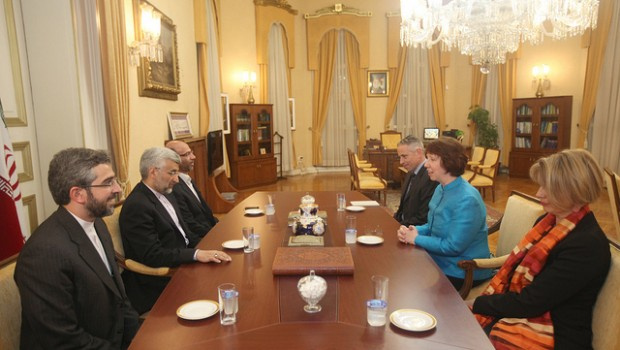Optimism for Outcome of Almaty Negotiations

- In this round of negotiations, the Islamic Republic of Iran has no interest in leading the talks to a deadlock.
- Another defeat in Iran-P5+1 nuclear negotiations would mean international pressures and the continuation of expanded sanctions. Therefore, it seems impossible that the Islamic Republic of Iran would be willing to lead the negotiations to a deadlock; thus, it will attempt to provide the ground for a minimum of understanding in any possible form to remove some of the pressures and sanctions and prevent a deadlock in negotiations.
- Contrary to the past, and on the verge of these negotiations, the Russians have exerted more pressure on the Islamic Republic of Iran and, along with the western countries, have demanded more flexibility from Tehran in this round of talks.
- The difference of this round of negotiations is the start of the policy of détente between the Islamic Republic of Iran and the US. Besides the contacts and meetings which may or may not have happened between the officials of the Islamic Republic of Iran, including the meeting of Dr. Velayati in Qatar, it can be comprehended from the current atmosphere in Tehran-Washington relations that the Islamic Republic of Iran does not intend to increase tensions with the US.
- Both Tehran and Washington are well aware of the fact that the path to détente in relations between the two countries passes through the Iran-P5+1 nuclear negotiations.
- On this basis, considering the fact that the Islamic Republic of Iran, in an indirect manner, and the US directly have shown interest in easing tensions, both sides will make efforts to achieve their goal of preparing the ground for potential future negotiations by reaching an agreement on Feb. 26th in Almaty, Kazakhstan.
- Therefore, considering the three mentioned points, i.e. the non-willingness of the Islamic Republic of Iran to reach a deadlock in future negotiations, Russia's exertion of pressure along with the western countries to show more flexibility and also the demand of the Islamic Republic of Iran for détente in Iran-US relations, it seems that, as the western countries have requested, we will probably see the demanded flexibility by the P5+1 in the upcoming talks.
- Asking the P5+1 to show their good will means that Iran tells the western countries that they should understand our situation and must not expect that we raise a white flag and kneel in front of them.
- Tehran asks the P5+1 that if a step is taken by the Islamic Republic of Iran, they should take a reciprocal step and not repeat the incidents of 2003 when Iran voluntarily suspended uranium enrichment for two years. Certainly, in this round of negotiations, the Islamic Republic of Iran will ask the P5+1 to show their good will in response to their flexibility by taking a reciprocal step.
- It must also be considered that, in this round of talks, the western countries will in no way demand an increase in sanctions, for, contrary to their expectations, increasing sanctions did not lead to domestic pressure by the people against the government and on this basis, the sanctions did not cause the Islamic Republic of Iran to retreat from its nuclear activities.
- On this basis, considering the ruling atmosphere on the verge of Iran-P5+1 negotiations, it can be hoped that for the first time the ice of the nuclear negotiations will, to some extent, melt; thus, I am very optimistic about the results of the nuclear talks in Almaty, Kazakhstan.

